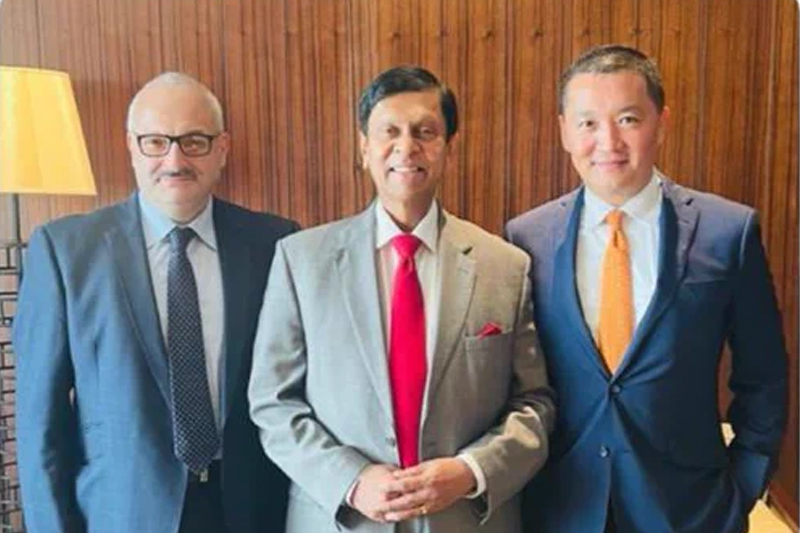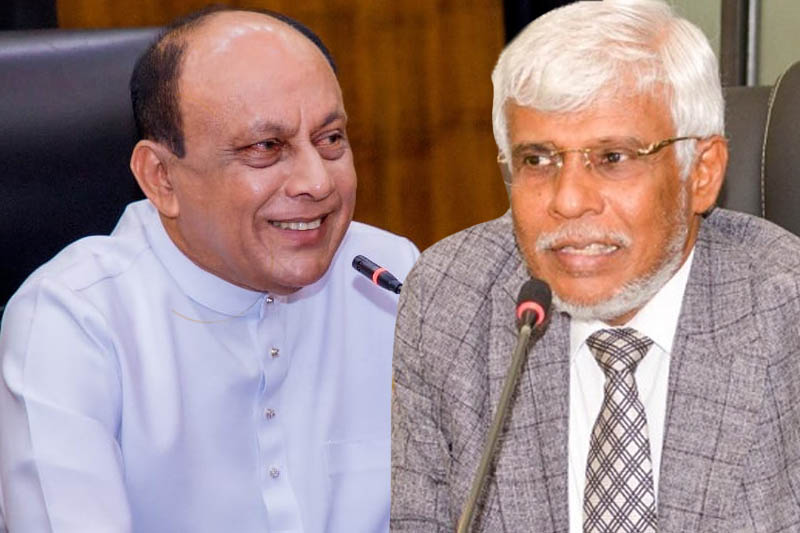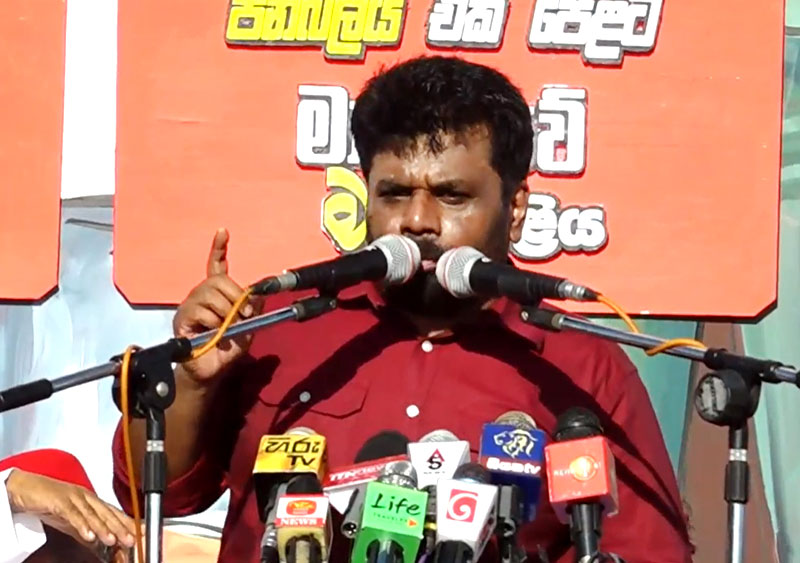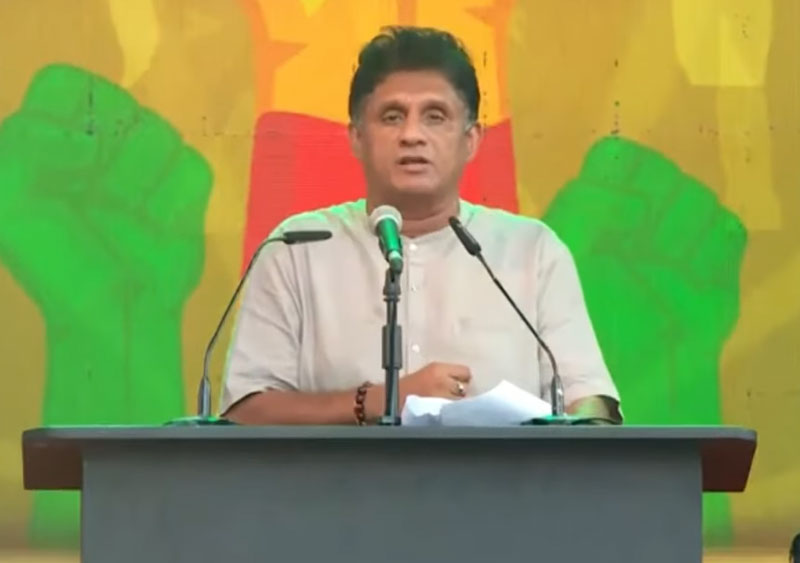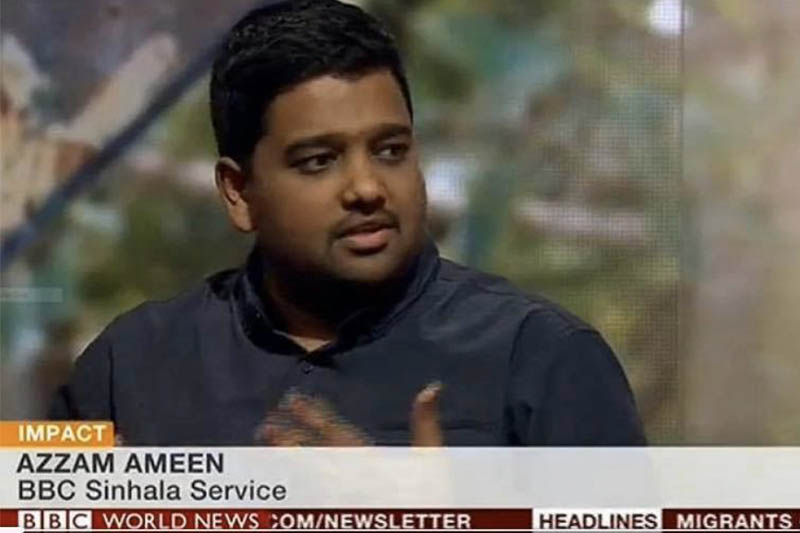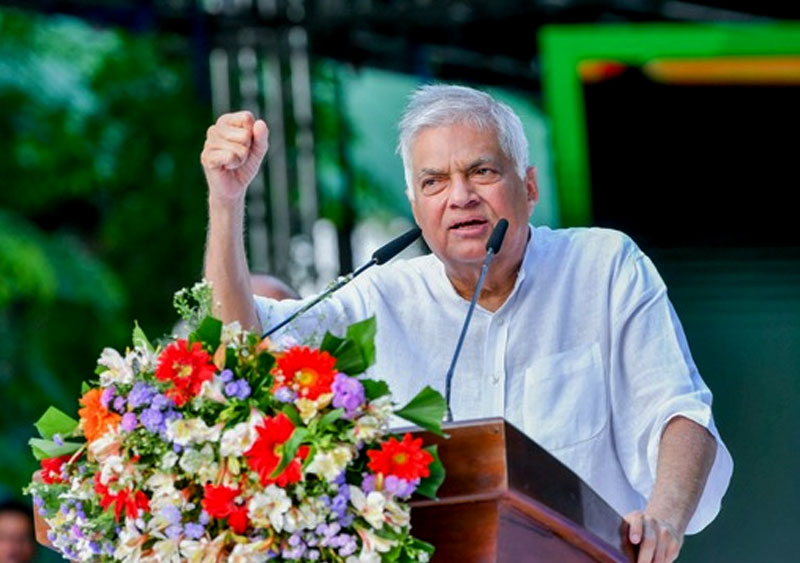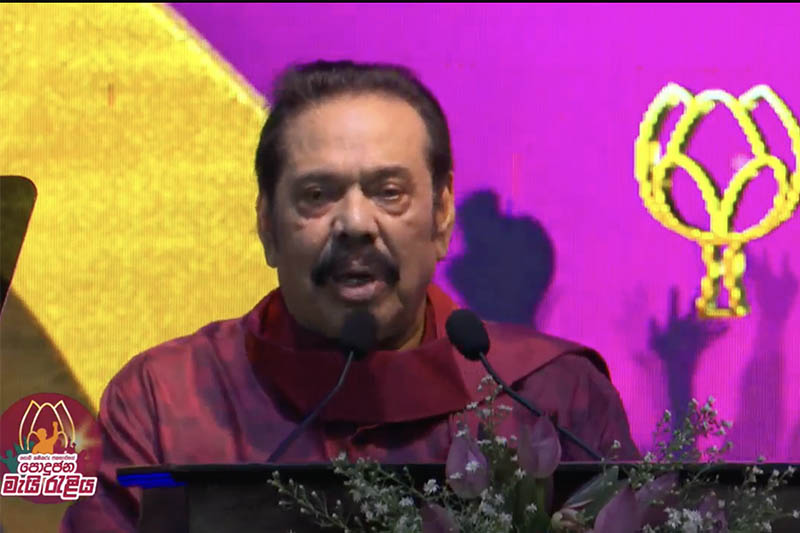UK’s Financial Times has carried a lengthy article raising questions about a bond issue by Sri Lanka in 2012, with the then Central Bank governor Ajith Nivard Cabraal too, mentioned.
It came after the US government last week intervened in a lawsuit triggered by the county’s 2022 default.
Reproduced below is the original article:
The mysterious ‘global financier’ suing Sri Lanka
As sovereign debt restructuring nerds, team Alphaville has had an eye on Sri Lanka. But our attention was properly piqued when the US government last week intervened in a lawsuit triggered by the county’s 2022 default.
The case has been brought by Hamilton Reserve Bank in St Kitts & Nevis. Somehow, a small bank based in a country with 50,000 inhabitants and GDP of under $1bn has amassed a $250mn face-value stake in a Sri Lankan bond.
This specific bond was issued in happier times (2012) and lacks some now-common clauses that make bonds easier to restructure, as Alphaville contributors Mitu Gulati and Mark Weidemaier have written. In essence, HRB’s $250mn is enough in theory to veto any restructuring proposal Sri Lanka makes to that specific security.
So far, so usual. There are hedge funds that specialise in sniffing out vulnerable sovereign bonds, amassing a blocking stake, waiting patiently for a broader restructuring to take place, and holding out for full repayment once a country has secured debt relief from other creditors. It’s called being a “holdout”.
But the size of HRB’s stake — and the unusual aggressiveness of its lawsuit against Sri Lanka, which began almost as soon as it defaulted in April 2022 — always smelled a bit fishy.
The US government suddenly and obliquely saying it wanted to get involved made the whole situation even more intriguing. The US will occasionally file “amicus briefs” laying out its views on contentious legal cases where it has pressing national interests (that seems to be the issue here), but it hardly ever gets involved in something as routine like this.
The facts aren’t really in dispute: Sri Lanka really has defaulted on the bond in question, and although HRB’s legal zealousness will be a massive headache to Sri Lanka at a perilous time, it’s not the kind of thing the US government would normally stick its oar in over.
So is there something else going on?
We’d heard whispers about who might be behind HRB’s lawsuit, and last week Sri Lanka’s law firm Clifford Chance for the first time said explicitly who it thinks is driving this: a Chinese-American financier called Benjamin Wey.
From Clifford Chance’s motion for a six-month stay of litigation, with Alphaville’s emphasis:
“. . . It is worth noting that — despite HRB’s claims to be a “bona fide” investor — there are serious questions about the nature of HRB’s alleged ownership interest. In addition, recently learned information suggests that HRB may have legal and regulatory problems of its own. Among other things:
— HRB and its sole shareholder — Fintech Holdings Ltd. — appear to be affiliated with Benjamin Wey, who is no stranger to legal controversy.
— In 2022, Fintech Holdings Ltd. acquired a troubled Puerto Rico bank, renaming it Hamilton International Reserve Bank LLC (“HIRB”). According to a Puerto Rico newspaper, HIRB’s subsequent transfer of customer accounts to HRB has generated controversy among customers and regulatory scrutiny.
— HRB’s affiliate Fintech Bank (whose principal officer has submitted declarations on behalf of HRB, see Docs. 48, 52, 61) was recently restricted from carrying out “licensed activities” by its Labuan regulator for “non-compliance to minimum capital and/or other regulatory requirements.”
We’ve emailed Clifford Chance to request additional information, and have asked both HRB and HRB’s lead lawyer Evan Kubota at Bleichmar Fonti & Auld to see if they would confirm Wey’s involvement. We’ve also pinged Wey on LinkedIn, and his lawyer by email. No one has replied yet. We’ll update this post if they do.
Wey is . . . an interesting chap. His personal website describes him as a “philanthropist and global financier”, whose “optimism and impressive winning streaks in the face of daunting odds” and “abilities to overcome obstacles continue to propel him and his clients into greater successes”. Wey’s Twitter X profile tags a registered trade mark symbol to his name.
Notoriety stems mostly from his promotion of a wave of Chinese reverse mergers as president of New York Global Group.
In 2015 he was arrested for fraud, but charges were eventually dropped in 2017 after a federal judge threw out evidence that prosecutors had obtained in a search of his apartment and office.
Separately, the New York Post dubbed Wey the “Horndog CEO” after he had to pay $18mn to an intern he had sexually harassed (later reduced to $5.65mn). Along the way he also appears to have run an online clickfarm called The Blot which he used to smear the former intern, journalists who had written about his travails and other people that had crossed him, in between a steady stream of generic internet content.
So is Wey involved in HRB and its lawsuit against Sri Lanka, and if so how?
Wey appears nowhere on the website of HRB, which says it was founded by “prominent bankers and lawyers from London”, including Sir Tony Baldry, a former MP and aide to Margaret Thatcher, who is now chair. The CEO is Prabhakar Kaza, who is also a councillor for Elstree & Borehamwood Town Council (his council disclosure form lists the HRB gig). Our requests to talk with Baldry (via HRB) and Kaza (via HRB and his councillorship) — or to at least get some kind of comment — have gone unanswered.
Luckily, Alphaville’s calls to some other Sri Lankan creditors yielded more than our emails to Clifford Chance, HRB, Bleichmar Fonti & Auld and the other parties involved . . .
It turns out that Wey had contacted several creditors about joining forces against Sri Lanka, and had even emailed a presentation laying out their case. We haven’t yet heard back from the lawyer whose name is on a copy of the presentation seen by Alphaville (Warren Raiti, in various other documents identified as assistant general counsel at Wey’s NYGG) but will update with any response we get.
The presentation is on behalf of something called Fintech Holdings, which the document says is the parent company of Hamilton Reserve Bank but stresses that “we need to limit public exposure of HRB as a private bank”.
The deck includes a snapshot of a now seemingly deleted tweet from central bank governor Ajith Cabraal on meeting the “amazingly intuitive and highly energetic” Wey and his “erstwhile colleague” Ghassan Nasr, who is head of international markets at HRB.
HRB did tweet out this image of Nasr meeting Cabraal, which remains online:
The presentation Wey sent to fellow Sri Lankan creditors includes a similar but different photo. For copyright reasons we are not including it, but can describe it. The photo shows both Wey and Nasr flanking Cabraal; Wey is identified as an FH “senior advisor” and Nasr as an “FH executive”.
The presentation says that at this meeting Cabraal assured Wey and Nasr that Sri Lanka would repay the 2022 bond in full and on time. As a result:
Relying on such explicit guarantees directly represented to us by the Sri Lanka Central Bank, we bought the July 2022 ISB in large quantities, trusting Sri Lanka would safeguard at all costs its unblemished sovereign credibility since 1948 as assured directly by the CBSL governor himself, as well as CEOs of the largest government owned banks who were introduced by the governor to our delegation.
Whoops!
When the restructuring was announced in April 2022, Wey sent a letter to Sri Lanka’s then-president Gotabaya Rajapaksa on HRB letterhead warning of the dire consequences of a sovereign default. Alphaville has also seen a copy of this letter, and in it Wey signs himself off this way:
According to the presentation, Fintech Holdings seems to think that a central bank governor saying a country won’t default before it actually defaults is some kind of securities fraud — which it really isn’t, whatever they believe.
This is just one example of the deck’s many misunderstandings and misrepresentations of the sovereign debt restructuring process, such as an argument that Fintech Holdings can block IMF payments to Sri Lanka until it is paid off. (Hello, lending-into-arrears policy!)
Creditors that took calls with Wey say that he seemed a bit amateurish.
The presentation makes a big deal out of how “suing a sovereign for non-debt payment can be a justified and lucrative business” citing how Paul Singer’s Elliott Management managed to extract $2.4bn out of Argentina in 2016 (an action led by occasional AV contributor Jay Newman).
However, that took one of the biggest and best-resourced hedge funds on the planet over a decade of tortuous, expensive litigation and still required a change in government, plus an irascible judge to construct a legal noose around Argentina’s financial neck. Fintech’s play looks more like a haphazard copy-paste of Kenneth Dart’s well-timed bet on a Greek bond in 2012, except this time it went horribly awry.
It will be interesting to see what the US government says (via the Southern District of New York), but in theory Fintech/HRB shouldn’t have a problem getting a judgment from the court — Sri Lanka has after all defaulted on the bond. Since the holdouts have a blocking stake and there are no aggregating collective action clauses, they should be able to shield the bond from the broader sovereign debt restructuring that is already under way.
But the chances that they will be able to collect on any judgment are slim. The bondholders that do eventually agree to a restructuring will work to ensure that the debt relief they offer doesn’t help bankroll a full payout to HRB. Most likely, Sri Lanka will just let any holdouts in the 2022 bond stew for years to come.
Not that this will deter Way, whose LinkedIn page says that one of his favourite quotes is this one from Churchill.
“Never give in, never give in, never, never, never, never-in nothing, great or small, large or petty — never give in except to convictions of honour and good sense. Never yield to force; never yield to the apparently overwhelming might of the enemy.”
Perhaps Alphaville will be featuring in The Blot sometime soon.
Patali calls for proper probe
Meanwhile, United Republican Party leader Patali Champika Ranawaka has called for a proper investigation into this bond issue.
*Editor’s note: We respect the right to reply if any party feels aggrieved by this article.

